|
Oliver Sacks, neurologist and author of 'The Man Who Mistook His Wife for a Hat' and 'The Island of the Colorblind' passed away today. He was Professor of Neurology at New York University School of Medicine. His 1973 book 'Awakenings', an autobiographical account of his efforts to help people with encephalitis lethargica regain proper neurological function, was adapted into the Academy Award-nominated film of the same name in 1990 starring Robin Williams and Robert De Niro.
In his most extraordinary book, 'The Man who Mistook His Wife for a Hat', Oliver Sacks recounts the stories of patients lost in the bizarre, apparently inescapable world of neurological disorders. These are case studies of people who have lost their memories and with them the greater part of their pasts; who are no longer able to recognise people or common objects; whose limbs have become alien; who are afflicted and yet are gifted with uncanny artistic or mathematical talents. In Dr Sacks’s splendid and sympathetic telling, each tale is a unique and deeply human study of life struggling against incredible adversity. Watch his brilliant TED talk below about what hallucination reveals about the mind HERE
0 Comments
by Rana Asfour If you're stuck between books and unsure of what to start on next, here are a few recommendations, some by the industry and others by very dear friends of mine, that I'm hopeful will help you make up your mind. 'The Girl in the Spider's Web' by David Lagercrantz There's been a big buzz of excitement and expectation where this new release, the latest addition to the late Stieg Larsson 'Millennium Trilogy', has been concerned. As a start, the appearance of a fourth book means the trilogy is now known as the 'Millennium Series' and if the Gods of the publishing world have their way, the series is expected to extend to at least 10 books, the number initially suggested by the late Swedish journalist and writer Stieg Larsson who penned the first three books. 'The Girl in the Spider's Web' written by Swedish journalist David Lagercrantz has very big boots to fill but initial reviews seem promising and many have applauded Lagercrantz's writing as staying true to the spirit and voice of the originals. It picks up years after the first novel in which the trilogy's famous characters Lisbeth Salander and journalist Mikael Blomkvist are reunited several years later when Blomkvist is contacted by Swedish scientist Professor Balder who wants Blomkvist's paper 'Millennium' to publish his autistic son's terrifying story. The first three books of the trilogy were written by Swedish journalist and writer Stieg Larsson who never got to see any of them published. The writer suffered a fatal heart attack in 2004. He was only 50 years old. The entire trilogy was published posthumously, and has gone on to sell more than 80 million copies worldwide according to latest figures. David Lagercantz is a Swedish journalist and best-selling author, best known as author of Zlatan Ibrahimović's biography 'I am Zlatan Ibrahimović'. 'Dark Tides' by Chris Ewan (recommended by author Helen Smith @ BritCrime) I have read all of author Helen Smith's books to date and have loved them all. BookFabulous has managed to review most of them and expect more reviews of Helen's books here very soon. Helen Smith is founder and organiser of BritCrime, an online book festival celebrating the best of crime fiction. They held their first event this July. BookFabulous was glad to take part and can't wait for the next one. 'Dark Tides' is one of Smith's latest recommendations: 'Dark Tides' which will be published in paperback in the UK on 3 September 2015, is by award-winning author Chris Ewan, writer of the highly successful thrillers 'Safe House' and 'Dead Line'. Voted as 'one of America's favourite British authors' by a Huffington Post poll, He is also the award-winning author of 'The Good Thief’s Guide' series of mystery novels (currently in development with 20th Century Fox Television). 'Dark Tides' is his latest stand alone thriller; a story about friendship, family, secrets, lies, and the things we do for love. When Claire Cooper was eight, her mother disappeared during Hop-tu-naa, the Manx Halloween. When Claire was eighteen, she and her friends took part in a Hop-tu-naa dare that went terribly wrong. Now in her early twenties and a police officer, what happened that Hop-tu-naa night has come back to haunt them all, and Claire must confront her deepest fears in order to stop a killer from striking again. This thriller is recommended for those who enjoy reading Stephen King and Harlan Coben. It is published by Faber & Faber. 'The Good Girl' by Fional Neill (recommended by dearest friend Tiffany Crow) English Playwright John Webster once wrote: 'Lay this unto your breast: Old friends, like old swords, still are trusted best' and so queue one of my dearest, most talented and beautiful friends, Tiffany Crow who's choice of books I have faithfully come to rely on and relish. Tiffany read English literature at King's College, holds a high-powered demanding job in Dubai as General Manager at Hogarth Worldwide, and in the process is mother to two gorgeous children. With all this to juggle, it's a miracle she has time to read at all. However, her choices are not to be taken lightly especially that she comes from a family of readers and writers. Her sister is Justine Crow, co-author of 'The Little Book of Nits', who is also a columnist, blogger and runs 'The Bookseller Crow', a bookshop on a hill, in South East London, with her partner Jonathan Main who knows absolutely everything there is to know about books. (check out the BookFabulous interview with Justine Crow HERE). So, 'The Good Girl' is the latest title Tiffany raved about when we spent last weekend catching up, celebrating birthdays, and stuffing our faces with cheesecake :)
The novel is about straight A student Romy Field who finds herself at the centre of a scandal that shocks everyone, especially her mother Ailsa - who is also the head of her new school. Ailsa is quick to hold Romy's new boyfriend and his parents responsible for what has happened. But as mother and daughter reveal their very different version of events, a much darker truth emerges. It soon becomes apparent that Romy isn't the only member of her family harbouring secrets and her disgrace becomes the catalyst for the unravelling of all those around her. Fiona Neill is a novelist and a journalist. She is the author of the novels 'Slummy Mummy', based on her hugely popular column in the 'London Times' a Sunday 'Times' bestseller that sold in twenty-five countries, and 'What the Nanny Saw'. Neill lives in North London with her husband and three children. Six months after his death, Terry Pratchett's novel, 'The Shepherd's Crown', has hit the shops in the UK and Commonwealth today. It is also available for download on kindle. Some bookshops opened earlier than usual for this major event with one in Perth, Australia, handing out a free box of tissues with each copy, in recognition of a 'final farewell'.
The number one listed bestseller in Teen and Young Adult Humorous Fiction on Amazon.co.uk is the 41st and final novel in his Discworld series and features the witch Tiffany Aching. It is described by one reviewer as 'a fitting end to Terry Pratchett's work'. The book will be published in the US on September 1. About the book: Deep in the Chalk, something is stirring. The owls and the foxes can sense it, and Tiffany Aching feels it in her boots. An old enemy is gathering strength. This is a time of endings and beginnings, old friends and new, a blurring of edges and a shifting of power. Now Tiffany stands between the light and the dark, the good and the bad. As the fairy horde prepares for invasion, Tiffany must summon all the witches to stand with her. To protect the land. Her land. There will be a reckoning . . . To read a review, click HERE. If you are a writer living in the UAE, seeking to get your first novel acknowledged, it means hours and hours of hunkering down in the writing cave and getting on with the business of well, writing. If it's lack of an incentive that's holding you back, then a great one to aim for would be The Montegrappa Writing Prize, launched by Emirates Airline Festival of Literature in 2013 with Montegrappa and Luigi Bonomi Associates.
This is a Prize aimed exclusively at UAE residents who have never had a novel published. All entries are read by Luigi Bonomi Associates and the winner receives a trip to London Book Fair and lunch with Bonomi. The top 5 participants will be able to discuss their work with Luigi Bonomi at Emirates Airline Festival of Literature 2016. Writers have got until October to write their masterpieces, which is when the Prize opens for submissions. This means that by October you should be ready to submit a synopsis of 400 words and the first 2,000 words of your manuscript, which will be read and judged by top UK Literary Agent, Luigi Bonomi. Any submissions not adhering to this strict format and word count will be automatically discounted. The 2015 Prize was won by Claudine Pabst, whose young adult fantasy manuscript ‘The Reluctant Thief’. Kim Adams was first runner-up for her contemporary novel, ‘The 9 Lives of Catherine Lewis’, and second runner-up for 2015 was Steven Bainbridge for his Japan and Korea-set mystery story, ‘Comfort Men’. To find out more about the prize's rules and regulations as well as its previous winners, click HERE. by Rana Asfour Exactly twenty years ago, fresh out of college with a Bachelor of Science Degree in Nutrition and Dietetics, saw me in Haifa and specifically at the Rambam Health Care Campus where my Jerusalem-based uncle, a leading heart surgeon who passed away in 2010, had secured me a place on a week-long training program. A hop and a skip away, living in Jordan awaiting the final details of my contract with one of Amman’s leading hospitals to be finalised, I wasn’t going to pass up the opportunity for further training. I had never been to Haifa, Bride-of-the-Sea, or Aruset El-Bahar as it is better known to Palestinians. I had read and heard about its beauty and charm, about its magic and its history and when I finally walked its streets and filled my lungs with the fresh breeze coming in from the sea, I knew the place was forever to be imprinted in my mind. Of the medical course, I sadly remember nothing, or of the facility or of the speakers. I can argue that twenty years is a long time ago, but the reality of the matter and what shadows my recollection is how uneasy I felt being there - it was a time when bus bombings were quite frequent - but I also remember there were two Palestinians from the West Bank (I forget their names) who had never been to Israel before and were there courtesy of special permits. It was also, interestingly, the first time I meet Arab Israelis (or Palestinian Citizens of Israel) who after ‘hospital’ time would offer me (and the two West Bank Palestinians) daily tours of their magnificent city. The deep (meaning political), at times difficult (meaning opposing), discussions and alternatively lighthearted banter that ensued over copious cups of coffee and obscene amounts of food is what remains with me to this day. My mother is a Palestinian from the West Bank city of Nablus. Before the first Intafada, I remember summers in that city that always seemed to conclude with a famous Rukab ice-cream in hand, trips to Nazareth, concerts in Bethlehem, and even leisurely weekends in Tel Aviv. However, with the onset of the first and then the second Intifada and all that ensued in between and after, 1986 was to be my last visit to a country that when I stepped back into years later was unnerving in its complexity and as far removed from that of my childhood summers as to be unrecognisable. And it is such tension, such layering and complexity of existence that feminist, political activist and author Khulud Khamis has successfully managed to convey in her debut novel ‘Haifa Fragments’. This beautiful story of an Arab Israeli woman whose family is one of many Palestinians who chose to remain in Palestine when in 1948 Israel established its state. The novel is set in modern day Haifa. The main protagonist is Maisoon, a talented jewelery artist. A feminist, an independent tradition-defying woman, she has just landed a job with Jewish Israeli boutique owner Amalia. She is also a Christian woman in a relationship with Ziyad, a Muslim apolitical man from Ar’ara, the heart of the Muslim Triangle. It is a rocky undefined unequal tense relationship in which Maisoon finds that ‘she walks in the rain, splashing through the puddles, while he avoids even the raindrops'. She didn't want to look too Arab but neither did she want to look like she was trying to shed her identity' - Maisoon Maisoon’s father, Majid, a complex man with an obscure past he has yet to reconcile with and who Maisoon sees as ‘of the generation today called the subservient. Those who never dared raise their heads’, is unhappy with his daughter’s choice and is constantly at wit’s end trying to dissuade his daughter from pursuing what he perceives as one dangerous adventure after another undertaken in an equally dangerous, not without severe consequences land. Soon though, Maisoon stumbles upon journals that shed more light on her father’s character and sets her on a scavenger's mission that threatens to unearth dormant skeletons. Although Arab, Maisoon’s encounters with the Palestinians on the other side of the Israeli border had been ‘sporadic and distanced – mainly communicating with them through the fence at checkpoints or at olive harvests’. When she finally does cross over to the West Bank to visit with Shahd, a woman she strikes a friendship with at a wedding, Maisoon gets a sense of how different life is on the other side. The two engage in a sort of love affair that as a reader I found quite baffling. In general though, Maisoon's sexual encounters with two of the novel's women (Shahd and Christina) is possibly its weakest link in which the build-up to both events is amateurish and the result unconvincing. However, the novel presents a kaleidoscope of interesting characters that converge and diverge creating a cacophony of diverse narratives that bring home the title of the book. How the author has managed to weave a tale from fragmented bits and pieces of her character’s lives to create a wholly immersive, workable plot is one of the strongest and laudable points of the book. Her characters are well rounded, engaging and plausible. One of my favourite characters in the book was Layla, Maisoon's mum; smart, pragmatic, affectionate and strong, and a kick ass coffee drinker. The Haifa that the author describes is a beautiful city yet it is a space where its citizens’ relationships are intense and layered although quite harmonious. However, the sense of what the Palestinians of the West Bank have lost and continue to lose is quite acute and how they have chosen to ‘survive’ Israel's intention of eroding their heritage and distorting their history is countered in the way Palestinians under occupation choose to conduct their lives. ‘We want to live. And in order to live, we can’t afford to wallow in the dust of history … and you know what? If we ever lose our smiles and our laughter –then we lose our humanity’, says Shahd defiantly, the West Bank resident who has known nothing but Israeli occupation. She woke each morning with the words etched inside her mind like stone: Moment of rage, forever of agony. She knew it was something so terrible that a human mind couldn't even begin to understand the meaning' - Maisoon Although the novel is low-key and subtle when it comes to conflict, one anticipates danger at every turn of the page, as if there were a ticking time bomb in the background waiting to explode and implode on all the characters’ lives. Inside Israel, the Israelis and their Arab citizens live cautiously and are ever observant of each other locked in an undisclosed struggle for identity. Maisoon, for instance, ‘didn’t feel wholly Falasteeniyya. She vehemently refused the adjective ‘Israeli’ that was forced on her. She was a woman with freedoms … but still she felt trapped between her father’s haunting past and her own tomorrows’. Yet as the relationship between Maisoon and her Israeli Jewish employer progresses, it is increasingly evident what the repercussions of living in fear and ignorance of the other can do in hindering understanding and preventing co-habitation that allows a community to not only live in peace but also to blossom and thrive. On the surface this may seem like an easy read but it will leave you with more questions than answers; a sure measure of the success of its writer. Khamis addresses many themes in her novel such as Normalisation of the Occupation, resistance and refusal to leave, rootedness and the current Palestinian generation's stand with regards to identifying with their collective history. It is about religion, tradition, love, friendship (particularly that of strong women), sadness and loss. Positive and full of hope, this a genuinely powerful debut. About the author:
khulud khamis is a Palestinian writer and activist, born to a Slovak mother and a Palestinian father. She holds a Master’s degree in English Literature from the University of Haifa and works in the field of social change. She is a member of the feminist organisation Isha L’Isha—Haifa Feminist Centre. She lives in Haifa with her daughter. Khulud publishes some of her writings on her blog HERE. 'Eugene Onegin' by Alexander Pushkin This first title was brought to my attention this summer by my extremely well-read, published author father-in-law. Both playful and serious, this poem in verse is about love and loneliness yet with vibrant, highly memorable and entertaining characters. 'The Waste Land' by T.S. Eliot Published in 1922, and regarded as 'one of the most important poems of the 20th century', 'The Waste Land' was the most revolutionary poem of its time, offering a devastating vision of modern civilisation which has lost none of its power in our day. 'Diorama' by Rocí Cerón translated from the Spanish by Anna Rosenwong Winner of the '2015 Best Translated Book Award for Poetry' which is awarded by Three Percent at the University of Rochester, 'Diorama' is both a book of poems and a performance action by the poet Rocío Cerón, who guides the reader on a hallucinatory, spiralling journey through image, language, Mexican history, and soundscapes. As unrelentingly tactile as it is unapologetically cerebral, Rocío Cerón’s new book asks that we relinquish control and submit to the poet’s brutal lyricism, and to a new kind of order imposed like a penumbra between us and the waking world. Cerón’s poems have been translated into English, Finnish, French, Swedish, and German. To learn more about the book and its author, click HERE. 'Nothing More to Lose' by Najwan Darwish 'Nothing More to Lose' is the first collection of poems by Palestinian poet Najwan Darwish to appear in English. Hailed across the Arab world and beyond, Darwish’s poetry walks the razor’s edge between despair and resistance, between dark humour and harsh political realities. With incisive imagery and passionate lyricism, Darwish confronts themes of equality and justice while offering a radical, more inclusive, rewriting of what it means to be both Arab and Palestinian living in Jerusalem, his birthplace. And one of my most favourite poems of all time, one I constantly find myself quoting from to my fab teen at home: 'If' by Rudyard Kipling
If you can keep your head when all about you Are losing theirs and blaming it on you, If you can trust yourself when all men doubt you, But make allowance for their doubting too; If you can wait and not be tired by waiting, Or being lied about, don’t deal in lies, Or being hated, don’t give way to hating, And yet don’t look too good, nor talk too wise: If you can dream — and not make dreams your master; If you can think — and not make thoughts your aim; If you can meet with Triumph and Disaster And treat those two impostors just the same; If you can bear to hear the truth you’ve spoken Twisted by knaves to make a trap for fools, Or watch the things you gave your life to, broken, And stoop and build ’em up with worn-out tools: If you can make one heap of all your winnings And risk it on one turn of pitch-and-toss, And lose, and start again at your beginnings And never breathe a word about your loss; If you can force your heart and nerve and sinew To serve your turn long after they are gone, And so hold on when there is nothing in you Except the Will which says to them: “Hold on!” If you can talk with crowds and keep your virtue, Or walk with Kings — nor lose the common touch, If neither foes nor loving friends can hurt you, If all men count with you, but none too much; If you can fill the unforgiving minute With sixty seconds’ worth of distance run, Yours is the Earth and everything that’s in it, And — which is more — you’ll be a Man, my son! The Emirates Airline Festival of Literature has announced a brand new list of authors appearing at its 2016 Festival which will take place 8-12 March. The initial list of 12 released in June successfully drummed up a great deal of excitement and organisers confirmed that the monthly announcements will continue up until the launch in October of this year. ‘The official launch of the 2016 Festival will be in October and our author list to date is looking incredible, with more than 100 writers already confirmed,’ Isobel Abulhoul, CEO and Trustee of the Emirates Literature Foundation and Festival Director of the Emirates Airline Festival of Literature said. ‘Our intention from the very first Festival has been to cater to a wide audience and a diverse range of interests and in 2016 we will certainly be doing that! We are especially excited that so many of our authors are award-winners and we are convinced that their inspirational engagement with large numbers of festival-goers each year is the reason we have taken home Best Festival in the Middle East Event Awards for the third time. It has been challenging to select just twelve names to share with everyone from an incredible list for 2016!’ Ann Cleeves, author of the immensely popular Vera Stanhope and Shetland crime series of books, both of which have been adapted to successful television shows, will be attending for the first time; as will Helen Dunmore, award-winning poet and writer of 'A Spell of Winter' and 'The Lie'; and Freya North, bestselling author of numerous novels including 'The Way Back Home'. The history and travel stands at the Festival have always attracted huge audiences and 2016 promises to be no different with John McHugo, Arabist and author of the critically-acclaimed 'A Concise History of the Arabs' making his first appearance at the Festival. Renowned historian John Man, also a new arrival to the Festival, has brought Genghis Khan to life through his books on China and Mongolia and 2015 Ondaatje Prize winner, Justin Marozzi, will discuss his book 'Baghdad: City of Peace, City of Blood'. The 2016 Festival will also feature a particularly strong Arabic segment with Egyptian scholar and author of the IPAF-winning novel 'Azazeel', Youssef Ziedan, and Hoda Barakat, Lebanese novelist and winner of the Naguib Mahfouz Medal for Literature for her book 'The Tiller of Waters'. The organisers are especially pleased to welcome Marilyn Booth, Professor of the Study of the Contemporary Arab World at Oxford University, UK, translator of Hoda Barakat’s works as well as author of a number of books with a focus on the Arab World. Science-fiction and fantasy children’s author Garth Nix will return to the Festival to talk about his recently released novella, 'To Hold the Bridge'. One of the region’s favourite children’s authors, Emirati writer Maitha Al Khayat, also returns this year. Chris Haughton, the award-winning children’s author of 'Oh no, George' and 'Shh! We Have a Plan' will join the illustrious line-up of children’s authors in 2016. Source: press release
Richard Flanagan wrote ‘The Narrow Road to the Deep North’ as a tribute to his father, one of a quarter of a million POW slave labourers in World War II, forced to work on what is now known as the 'Death Railway' or ‘The Line’ from Siam (now Thailand) to Burma that the Japanese began to construct in 1943.
A quick Google search tells that more than 180,000—possibly many more—Asian civilian labourers (Romusha) and 60,000 POWs worked on the railway. Of these, estimates of Romusha deaths are little more than guesses, but probably about 90,000 died. 12,621 Allied POWs died during the construction. The dead POWs included 6,904 British personnel, 2,802 Australians, 2,782 Dutch and 133 Americans. The numbers are more than died at Hiroshima (70 years this August), pointed out Flanagan in an interview with The Guardian, and a place where there were more ‘corpses than there were words in my novel,’ he added. Flanagan’s father, a man in his nineties, passed away on the same day his son sent the final draft to his publisher. The author has dedicated ‘The Narrow Road to the Deep North’ to prisoner san byaku san jū go (335); his father’s prison number. It won the Man Booker Prize 2014. The novel is a love story and a war story, and from what I’ve read about Flanagan, it seems that for a war story to succeed, a love story must accompany it. And I happen to agree particularly in this case where certain passages are so graphic in their depiction of the atrocities, that without our hope for a happy ending somehow, for any one of the characters, this would only be one horror reel after another, after another as the reader is bombarded with accounts of what went on in Siam in 1943 and what the POWs had to go through day in and day out where one is driven to the conclusion that to be ‘lucky’ meant to be dead and where even the jungle monkeys were envied for their freedom. All I could think of as I read through this novel and well after I was done with the book, that we, as humans, never learn not to go to war. Dorrigo Evans, the 'Big Fella', the novel’s main character, seems to share my thoughts after one the novel’s most traumatic, and gruesome event takes place and he realises for an instant that he thinks he has grasped ‘the truth of a terrifying world in which one could not escape horror, in which violence was eternal, the great and only verity, greater than the civilisations it created, greater than any god man worshipped, for it was the only true god. It was as if man existed only to transmit violence to ensure its domain is eternal’. Forever after for those men, ‘there were for them only two sorts of men: the men who were on the Line, and the rest of humanity, who were not’. The book borrows its title from 17th century haiku poet Matsuo Bashō's famous haibun known in English as 'The Narrow Road to the Deep North'. The novel also encompasses the post war lives of Japanese and Korean prison guards as well as the Australian Prisoners of War. Richard Flanagan’s novel is a beautifully written masterpiece, already a winner of one of the highest accolades in literature. In his book, Flanagan writes of Dorrigo Evans’ view of a good book as one that ‘leaves you wanting to re-read’ it, yet a great book ‘compels you to re-read your soul’. The latter applies to the book at hand. I do warn that it is not an easy read and yet one that will stay with readers long after its last word. The Back Cover: In the despair of a Japanese POW camp on the Burma Death Railway, surgeon Dorrigo Evans is haunted by his love affair with his uncle's young wife two years earlier. Struggling to save the men under his command from starvation, from cholera, from beatings, he receives a letter that will change his life forever. This is a story about the many forms of love and death, of war and truth, as one man comes of age, prospers, only to discover all that he has lost. About the author: Born in Tasmania in 1961, Richard Flanagan is one of Australia's leading novelists. His novels, Death of a River Guide, The Sound of One Hand Clapping, Gould's Book of Fish (winner of the Commonwealth Writers' Prize), The Unknown Terrorist and Wanting have received numerous honours and been published in 26 countries. Learn more about him HERE. 'Hotel Andromeda' by Gabriel Jocipovici is Inspired By Life Of American artist Joseph Cornell9/8/2015 by Rana Asfour The exhibition: Currently on exhibit on the top floor of the Royal Academy of Arts in London, is a unique collection of art objects by American artist Joseph Cornell. You will have to take the stairs to get to it as the lift is not working, but trust me, it is worth it. Besides, once you're up there, you can rest on a stone bench in a small enclosure found at the back of the stairs that faces a marvellous sculpture by Michelangelo; actually the only marble sculpture by Michelangelo in a British collection. The exhibit, 'Wanderlust', has been heralded 'first rate' by the Guardian, and 'spellbinding' by The Telegraph, and showcases the best of Purcell's artwork, mainly his 'shadow boxes': modest, glass-fronted constructions which transport the viewer into imagined realms. The exhibition is on until September 27. A mere few days later, I would come across another of Purcell's work as I went about the galleries at the Museum of Modern Art in New York City. What fascinates most about this artist is that he never once travelled anywhere beyond his city (New York) and yet his work is all about different places from around the world; places he yearned to visit. Dubbed an 'armchair vogager', Cornell is known as one of the 20th century's most innovative, original and inventive artists. To know more about him, click HERE. Now why would I be telling you about the exhibition? For two reasons really. The first is that it really is quite an entertaining exhibit which at times I found oddly uncomfortable, and second because I want to tell you about a recent novel called 'Hotel Andromeda' by Gabriel Jocipovici. According to Timothy Hyman, a British figurative painter, art writer and curator from the Royal Academy, 'Gabriel Josipovici’s most recent novel, 'Hotel Andromeda', offers a wonderful entry-point into the collage-boxes of Joseph Cornell. Evoking the specific ‘atmosphere’ of this most reclusive and elusive of twentieth-century culture-heroes, he sidesteps any critical closure, in an exploration always open to ethical and aesthetic uncertainty. A young woman, an art-historian in contemporary London, struggles to maintain her belief in art’s value, in the face of catastrophe elsewhere; out of this tension, Josipovici creates a marvellous tragi-comic ‘box’, within which Cornell’s own poetic vision emerges – both light and profound'. The book:
In a house in a quiet street in North London, Helena struggles with her self-appointed task of writing a book about the reclusive American artist Joseph Cornell. At the same time she dreams and thinks about her sister Alice working in an orphanage in Chechnya. She is certain that Alice despises her for living a life of comfort and privilege, far away from the horrors of war; yet she knows too that her work is more than self-indulgence. How to reconcile these two visions? Enter Ed, a Czech journalist and photographer who claims he has been working in Chechnya and brings news of Alice, along with the request for a bed for the few days he has to be in London. Gabriel Josipovici's sparkling new novel charts the course of those few days, as Joseph Cornell's mysterious life and the strange boxes he constructed wage a silent struggle in Helena's mind and spirit with the imperatives of the present. Amman - It feels like a million degrees in dusty Amman at the moment as the country goes through one of its most ferocious heat waves in years. Sticking to the comfort of my mum's air-conditioned home, I find, ensconced comfortably amongst the family's favourite books, this beautiful, mesmerising gem by Iraqi-British artist Firyal Al-Adhamy (فريال الأعظمي) who I soon find out was inspired by Syrian poet Loay Taha to write her book. The publication, 'Do No Unveil My Colors, A Homeland Sleeps There' (2014) demonstrates the splendour, yearning, complexity and passion for the 'homeland' by mixing prose, verse and visual artworks centred around Arabic calligraphy. The pages of the book are laid out such that one side carries the artwork while the page opposite contains the prose or verse written in both the English and Arabic language. A section of the book, written by Iraqi artist and Visual Art Critic, Muhsin Aldahabi offers an in-depth critic of Firyal Al-Adhami's art which also follows the two column layout appearing in English and Arabic. Firyal Al Adhamy is an Iraqi-British artist who has contributed to noteworthy group exhibitions at local and international levels. Her artwork is in private collections worldwide as well as in important public collections in the British Museum, Arab British Chamber of Commerce, National Gallery of Fine Arts in Amman Jordan, and Bait Al-Quran in the Kingdom of Bahrain among many others.
This publication marks the convening of her most recent exhibitions in Bahrain: 'When the Word Turns Into A Fragrant Ray of Light' (2009) and 'Darwish, An Alter of Poetry' ( 2013). "The book", Firyal says, "contains poems that celebrate the homeland by the Syrian poet Loay Taha, who, like me, is destined to live far from the country of his birth. We are bound by a common longing for this homeland. He was the genuine catalyst for this book who suggested we conjoin the words and the paintings in prose or poetry'. In the words of Muhsin Aldahabi, Iraqi Artist & Visual Art Critic, who writes in the book that this publication "thus embodies poetry and visual art at the same time, and suggests a symphony that fills the space with the harmony of its rhythms. Colour embraces letter in a rhythmical structure which resembles an architectural design of interpolated layers in a musical note." Describing Firyal's art, Baria Alamuddin, Journalist/ Writer/ Commentator, comments: "The first thing that hits you about Firyal's paintings are the strident and bold colours. You are bathed in a deluge of sensuous hues, rendered in warm and confident combinations. Firyal is not someone who wears her Iraqi and Arab cultural heritage lightly. Weaved within the dense colours of many of her works we stumble across cuneiform lettering, beautiful Arabic calligraphy, and figures retrieved from Mesopotamian, Assyrian and Babylonian folklore." Author Samantha Herron fell in love with Morocco many years ago. It led her to study Arabic and spend time living with a Berber family of former nomads in the Draa Valley on the edge of the Sahara Desert in Morocco. She immersed herself in the language, culture and traditions of the country. Captivated by the ancient art of storytelling, which was alive and thriving amongst the community, she began to collect stories that she was hearing. She then found herself imagining and composing her own Moroccan stories. This debut collection of stories 'The Djinn in the Skull: Stories from hidden Morocco' are all set in contemporary Morocco, take the reader on a journey into the hearts and minds of ordinary Moroccans and offer a glimpse into life in this magical and ancient land. Tahir Shah, author of 'The Caliph's House' and 'In Arabian Nights', comments: 'Samantha Herron has succeeded triumphantly in doing what many Occidental writers have failed in for centuries - showing Morocco from the inside out. The stories she has so eloquently told are part of the 'real' Morocco, a kingdom that is so often invisible to visitors. This magical realm has traditionally been received orally, and not through written text. It exists, not in the grand touristic sites, but in the ancient fabric of places like the Draa Valley, from where her stories come. A wonderful collection, highly recommended.' Tim Mackintosh-Smith, Arabist and author of 'Travels with a Tangerine: A Journey in the Footnotes of Ibn Battutah', comments: 'Samantha Herron found some of her Moroccan stories ready-made. Others she imagined or dreamed. In size they are miniatures; but they all express big things on a small scale. Reading them is like peering through a series of keyholes – and, each time, glimpsing something momentary but momentous, instants with life-long consequences. They will make you smile, and shiver. And they will tell you as much truth about their Moroccan setting as a shelf-full of ethnologies.' Samantha Herron’s previous work includes the English and Arabic publication 'Dardasha: Testimonies of Migration by Moroccan Women' (Soul Bay Press 2011) which was produced in association with the Al Hasaniya Moroccan Women’s Centre in London and featured at London’s Nour Festival 2013. She presented some of the stories from 'The Djinn in the Skull: Stories from hidden Morocco' as part of The Storytelling Circle at Nour Festival 2014. This is her first work of fiction. 'The Djinn in the Skull: Stories from hidden Morocco' will be published on 23rd October 2015. Soul Bay Press is an independent publishing house based in London, Eastbourne and Sydney. It specialises in publishing both new work by emerging authors and old classics which are out of print or copyright. http://www.soulbaypress.com/ Source: press release
|
Archives
March 2021
|


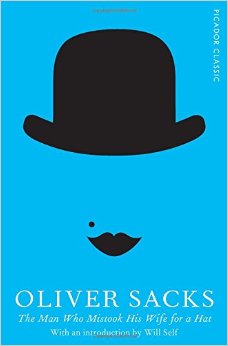
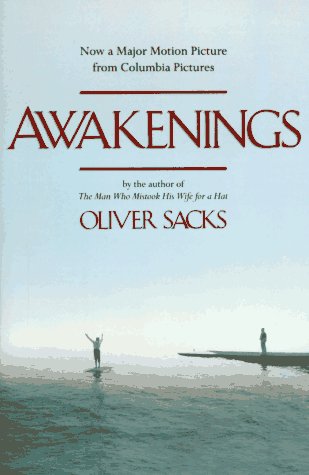
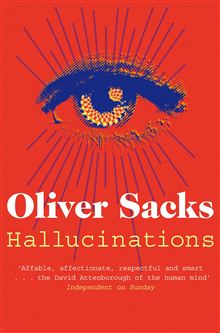
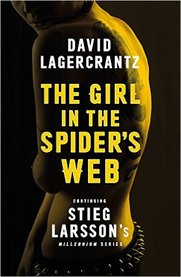
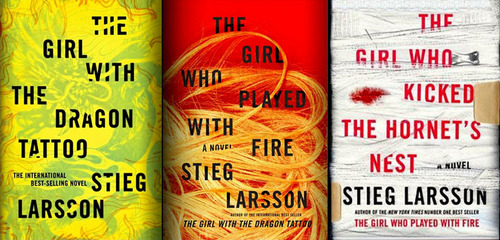
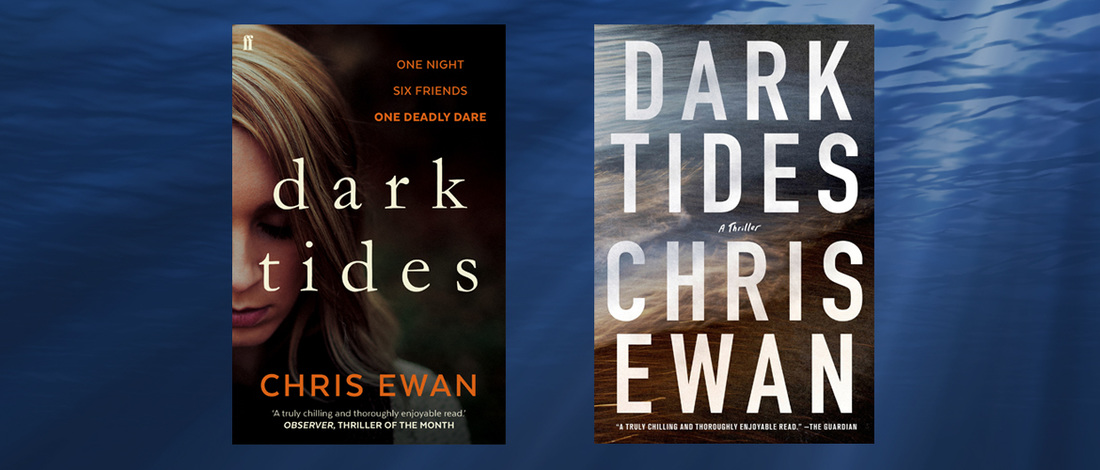
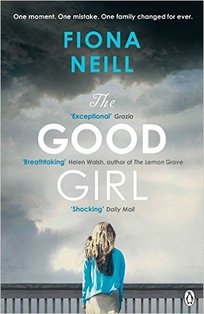
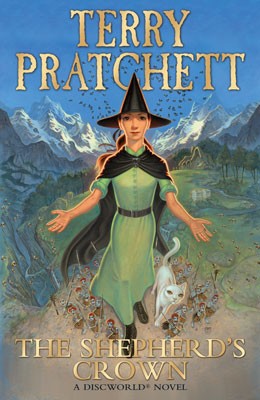
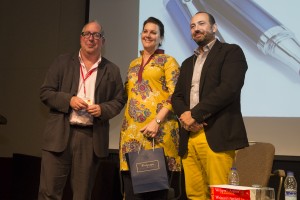
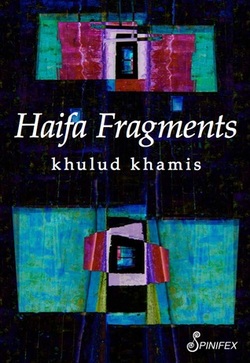
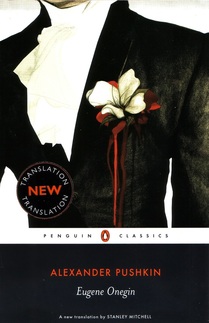
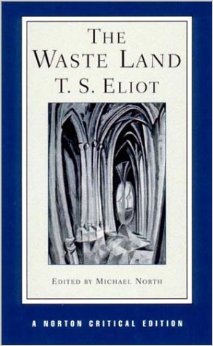
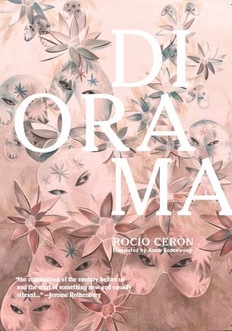
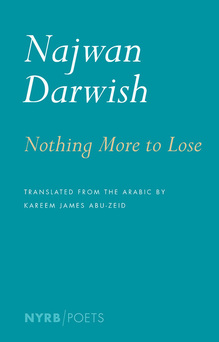
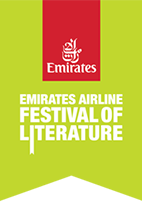
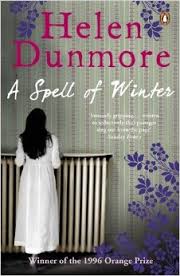
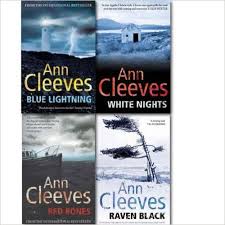
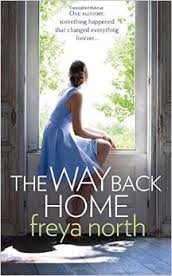
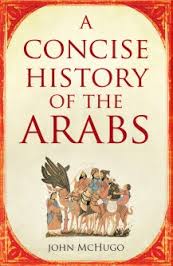
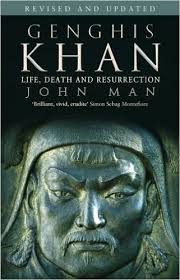
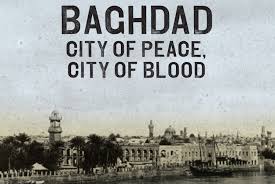
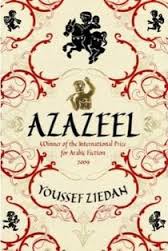
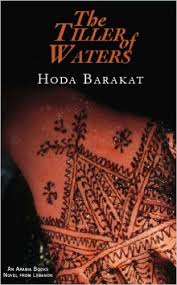
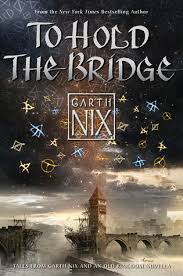
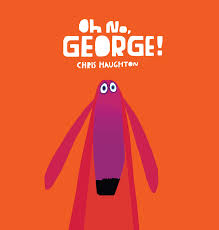
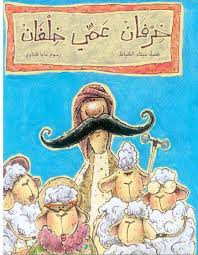
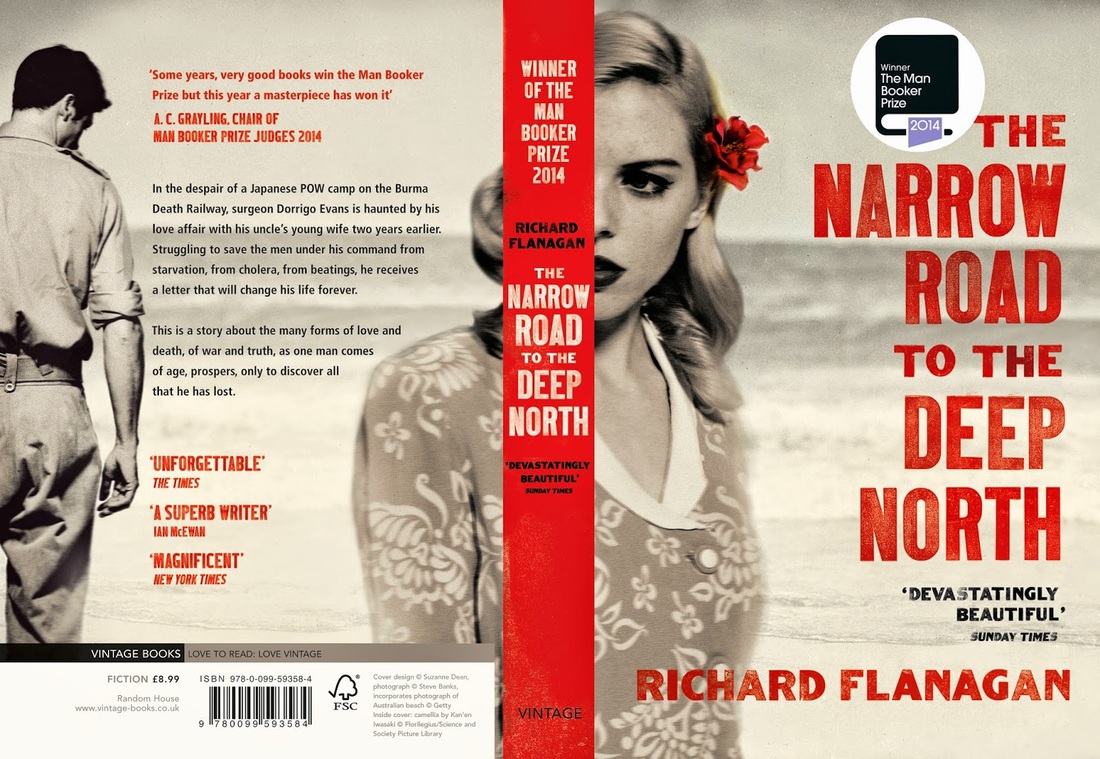
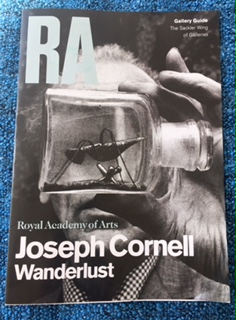
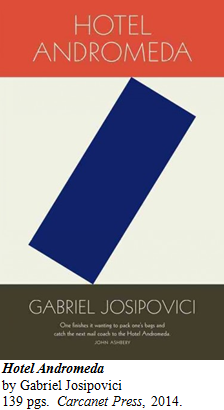
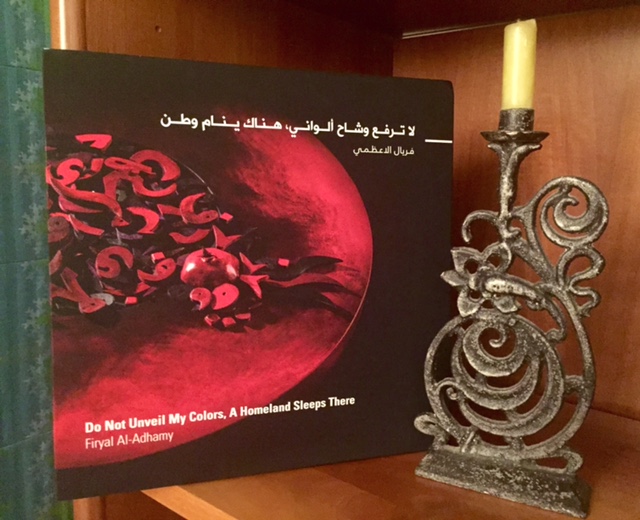
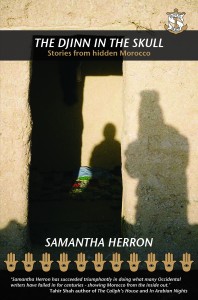


 RSS Feed
RSS Feed
